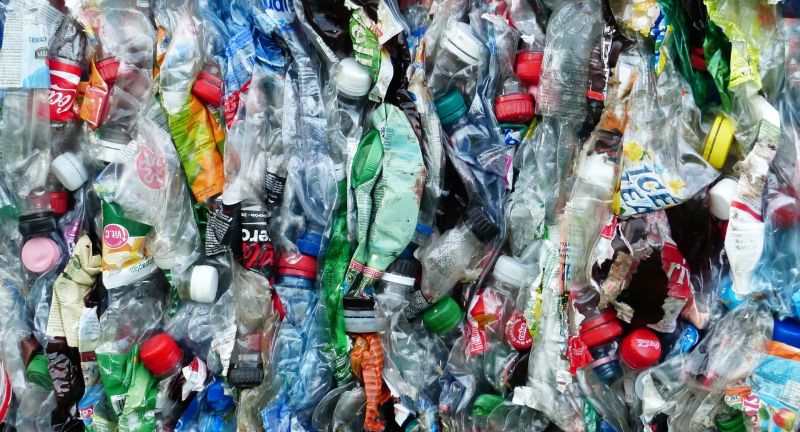EU's recycled content rules stir controversy

Should a plastic bottle with a “100 percent recycled plastic” label be made up entirely of recycled plastic?
According to the European Commission, the answer is: no, not necessarily.
As part of its push to tackle the bloc’s growing mountains of waste, the EU has agreed to new rules on recycled content in single-use plastic beverage bottles.
The question is how to calculate that recycled content. According to a document obtained by POLITICO dated Feb. 13, the EU executive is backing a laxer approach championed by the plastic and chemicals industries.
The method would allow companies to collect recycling credits for different products across their range and then bundle them together in the labeling of one product — effectively enabling them to use a “100 percent recycled” claim where it would be most valuable, even when it is not strictly speaking the case.
The plastic and chemicals industries say the more flexible approach is crucial to boosting chemical recycling technologies, which can deal with hard-to-recycle plastics.
Environmental groups and other recyclers are up in arms about the proposal, and have been pushing for stricter rules on how those so-called recycled content credits are transferred to avoid misleading consumers.
“This is, for me, a really high risk of greenwashing,” said Zero Waste Europe policy officer Lauriane Veillard.
Without safeguards, recycling claims risk becoming a “meaningless accounting exercise,” warns the Environmental Coalition on Standards.
Scrambling the math
Chemical recycling processes require the mixing of virgin and recycled plastic, resulting in a range of new products such as high-value polymers, low-value polymers, other petrochemicals and fuel.
But policymakers have not yet worked out how the recycled content should be tracked, verified and communicated — which is where things get tricky.
The chemicals industry has been pushing for a calculation method that allows them to shift so-called recycled content credits from one product to another (apart from fuel) and transfer those credits to products where a “100 percent recycled” claim would be most valuable. It would also allow them to use up less plastic waste — which is expensive to collect and sort — as feedstock.
Their position now appears to have the backing of the Commission, which wants to ensure that the new rules don’t hamper the development of the sector.
In a note obtained last year, the Commission warned that if new rules governing the technology are “too restrictive, chemical recyclers might refrain from planned investments, which could stall the development of the sector.”
The Commission also pointed out that chemical recycling could help the EU “reach our ambitious recycling targets.” According to the new rules, countries must ensure PET beverage bottles include at least 25 percent recycled content by 2025. That’ll rise to 30 percent by 2030.
Mechanical recyclers complain that a looser calculation method will give chemical recyclers an unfair advantage, creating an “uneven playing field” for manufacturers and recyclers that already use 100 percent plastic waste as feedstock. They also fear that resulting greenwashing accusations could trigger “public backlash against the entire recycling sector.”
Even the Commission has acknowledged — in the note from last year — that if chemical recycling calculations are “too flexible, traceability of recycled content becomes more complex, and confidence in recycled content claims and in the recycling of plastics could be undermined.”
Policymakers’ position on the issue will also influence future laws on recycled content beyond plastic bottles.
The Commission document is likely to be discussed at the next meeting of national experts in the Waste Technical Adaptation Committee on Tuesday.
You can return to the main Market News page, or press the Back button on your browser.

